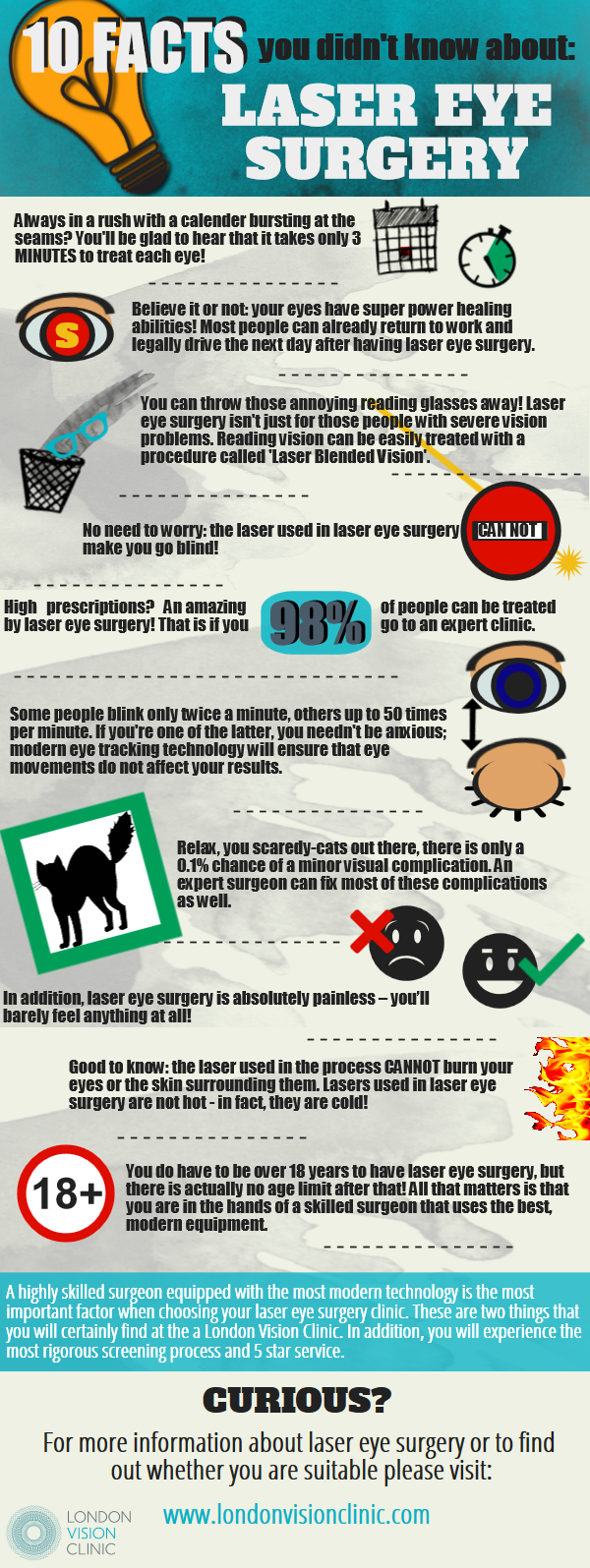Is SMILE Eye Surgical Procedure Right For You? Trick Considerations And Insights
Is SMILE Eye Surgical Procedure Right For You? Trick Considerations And Insights
Blog Article
Published By- Highly recommended Internet page
If you're considering SMILE eye surgery, consider this: are you prepared to embrace potential aesthetic freedom, or does the idea of any kind of threats make you think twice? After Cataract Surgery When Can You Drive will depend upon a careful equilibrium of weighing the advantages against the unpredictabilities. It's crucial to delve deeper into the subtleties of SMILE surgery to make an educated choice that straightens with your aesthetic objectives.
Comprehending SMILE Eye Surgical Treatment
When considering SMILE Eye Surgical procedure, it is very important to comprehend the treatment and its advantages. SMILE, which stands for Tiny Cut Lenticule Removal, is a minimally invasive laser eye surgical procedure that deals with typical vision troubles like myopia (nearsightedness).
Throughout the procedure, your eye specialist will use a femtosecond laser to produce a little cut in your cornea. Via this cut, a small disc of cells called a lenticule is gotten rid of, improving the cornea and fixing your vision.
Among https://morningpicker.com/entertainment/kylie-jenner-and-bff-stassie-get-matching-lasik-eye-surgery-they-even-threw-an-after-party-after-the-procedure-31432/ of SMILE Eye Surgery is its fast recuperation time. Numerous people experience boosted vision within a day or 2 after the procedure, with marginal pain.
In addition, SMILE is known for its high success rate in offering long-lasting vision adjustment. Unlike LASIK, SMILE does not require the creation of a flap in the cornea, reducing the threat of difficulties and permitting an extra secure corneal framework post-surgery.
Recognizing the procedure and its benefits is essential when thinking about SMILE Eye Surgery for vision correction.
Advantages and disadvantages of SMILE
Thinking About SMILE Eye Surgery for vision correction features various benefits and potential disadvantages.
Among the main pros of SMILE is its minimally intrusive nature, as it entails a little cut and usually leads to fast recovery times. The treatment is likewise recognized for causing very little pain and dry eye symptoms post-surgery contrasted to other vision adjustment approaches. In addition, SMILE has been shown to offer superb aesthetic end results, with many clients achieving 20/20 vision or better.
On the other hand, a possible disadvantage of SMILE is that it might not be suitable for people with severe refractive mistakes, as the treatment array is somewhat minimal contrasted to LASIK. One more consideration is that the understanding curve for doctors applying SMILE can influence the schedule of experienced companies in certain areas.
It is necessary to weigh these advantages and disadvantages very carefully when determining if SMILE is the best option for your vision adjustment demands.
Identifying Qualification for SMILE
To identify if you're qualified for SMILE eye surgery, your optometrist will carry out an extensive analysis of your eye health and wellness and vision needs. During this evaluation, variables such as the security of your vision prescription, the thickness of your cornea, and the total health of your eyes will certainly be examined.
Typically, candidates for SMILE more than 22 years of ages, have a steady vision prescription for at the very least a year, and have healthy corneas without problems like keratoconus.
Your eye doctor will likewise consider your overall eye health, any kind of existing eye conditions, and your lifestyle requires to determine if SMILE is the right option for you. It's important to interact any kind of specific visual needs or worries you might have throughout this analysis to make sure that the therapy straightens with your expectations.
If you aren't qualified for SMILE, your optometrist may advise alternate vision correction options that much better fit your specific needs and eye health and wellness condition.
Conclusion
Ultimately, making a decision whether SMILE eye surgical treatment is right for you needs careful consideration of your specific eye health and wellness and aesthetic requirements. Consult with your ophthalmologist to identify your eligibility for the treatment and weigh the possible benefits and drawbacks. Keep in mind to communicate any kind of concerns or inquiries you might have during the examination procedure to make an informed choice regarding your vision adjustment alternatives.
